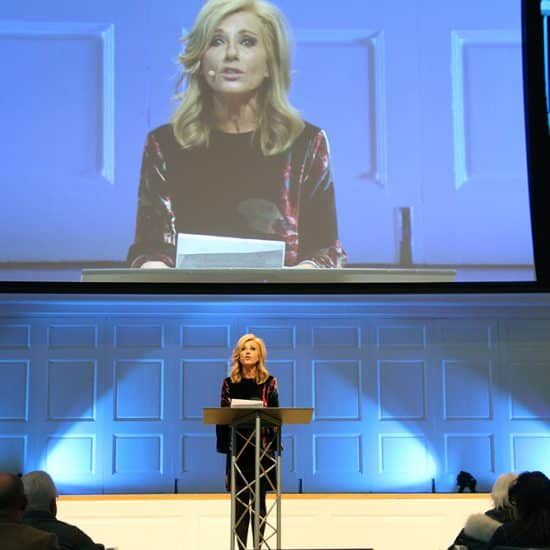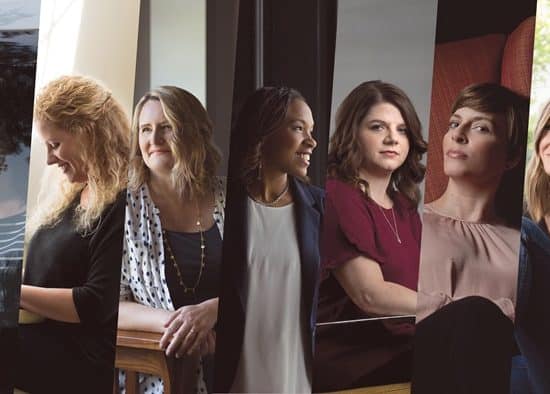In 2002, a Boston Globe investigation brought widespread media coverage to child sexual abuse allegations within the Catholic Church. Tarris Rosell remembers people talking about what an awful year it had been for the Church, but he had another perspective.
“I began to wonder, ‘Is it?’ It seemed a banner year for victims within the Church because they finally found their voice,” he said. “It was a wonderful year in the sense that our eyes were opened and our ears were hearing the voices of survivors.”
 Tarris RosellThe events of the past few months seem like a similar reckoning, primarily because of social media platforms like Twitter, said Rosell, professor of pastoral theology in ethics and ministry praxis at Central Baptist Theological Seminary, in Shawnee, Kan., and the Rosemary Flanigan Chair at the Center for Practical Bioethics in Kansas City, Mo.
Tarris RosellThe events of the past few months seem like a similar reckoning, primarily because of social media platforms like Twitter, said Rosell, professor of pastoral theology in ethics and ministry praxis at Central Baptist Theological Seminary, in Shawnee, Kan., and the Rosemary Flanigan Chair at the Center for Practical Bioethics in Kansas City, Mo.
“In a year in which some of us bemoan the forum because of the destructive ways it has been utilized, it also has this other use that is helpful in helping victims find their voice,” Rosell said, speaking of the #MeToo and #ChurchToo movements that began on Twitter.
Social media also has become a place to support victims of sexual abuse and harassment, Rosell said. That is what happens when the victimized are invited to share their stories, he said. Rosell knows that better than most. As a seminary professor he incorporates church clergy misconduct prevention into his lesson plans. He also conducts workshops for churches who want to be proactive in prevention. Because he teaches people how to avoid becoming a victim or an abuser, Rosell is seen as a friendly ear to hear their pain. It is a responsibility he accepts.
“Once I incorporated church clergy misconduct and prevention as part of my teaching, students and others began coming to me and telling me their stories — so many stories, too many stories,” he said.
He has seen women abused 30 years prior weep as if the abuse had happened yesterday, he recounted. The stories may seem mild to some — a kiss, a hug, a sexual comment — but the abuse of trust in each situation is deeply painful.
“Their words have sensitized me to the fact that it doesn’t have to be rape, doesn’t even have to be multiple occurrences,” he said. “It’s that the actions are unwanted and inappropriate, traumatic and harmful.”
Early on Rosell began to apologize to victims — not because he had done anything himself but “on behalf of some brother who ought not to have done that.”
“His conduct was wrong. It was abuse. So, if he won’t or can’t make amends, I offer my apology as a clergyman who knows that should never happen,” Rosell explained.
Silence is often the response from all involved — the victim, the perpetrator and others who know but who want the matter to go away quietly. That is one reason prevention is so important, Rosell said.
“In our churches, schools and homes, we need to make our children aware that their bodies are to be treated with respect. They can say no. They can report anything that makes them feel uncomfortable,” he said.
 Bill TillmanA church is a particularly problematic place when it comes to talking about sex — from sexual purity to sexual assault, the issues are difficult, which is why they are often ignored, says Bill Tillman, director of the Center for Congregational Ethics in Fort Worth, Texas. Preaching about the issues is one manner of prevention, too, Tillman said.
Bill TillmanA church is a particularly problematic place when it comes to talking about sex — from sexual purity to sexual assault, the issues are difficult, which is why they are often ignored, says Bill Tillman, director of the Center for Congregational Ethics in Fort Worth, Texas. Preaching about the issues is one manner of prevention, too, Tillman said.
“Not many congregations do any emphasis or education about sexuality as a whole,” he said. “They take the easy way out and just ignore those topics.”
Policies are also important. Strong policies and procedures for dealing with sexual misconduct speak to the Bible’s perspective on justice, Tillman said.
“The balance of God always weighs in favor of the oppressed, the dominated ones, those who are violated,” he said.
In too many cases Rosell has encountered, there was no clear policy in place to deal with clergy misconduct. If there was a policy, it often was not followed.
“We need to know what to do so further abuse is prevented,” he said.
 Amy ButlerSpeaking out takes courage, as the #MeToo movement has shown. Amy Butler, a pastor in New York, wrote at the online site Patheos about her own experience with sexual harassment in the church. Early in her pastorate, an influential lay leader in the congregation made inappropriate comments to her. She ignored them until she started to hear from other women about similar unwelcome interactions with the person. She realized the impact of her silence.
Amy ButlerSpeaking out takes courage, as the #MeToo movement has shown. Amy Butler, a pastor in New York, wrote at the online site Patheos about her own experience with sexual harassment in the church. Early in her pastorate, an influential lay leader in the congregation made inappropriate comments to her. She ignored them until she started to hear from other women about similar unwelcome interactions with the person. She realized the impact of her silence.
“My heart sank and I was suddenly aware that the lessons I had learned my whole life — lessons of ‘just get used to it’ and ‘experiences like this are part of being a woman in leadership’ — should not be a posture we assume in a community that claims to follow in the way of Jesus Christ.”
She reported the incident. The lay leader was found to have violated church policies, and steps were taken to protect women in the future.
While punitive action is often required, forgiveness is an element in Scripture that cannot be overlooked either, Tillman said.
“What is it we’re supposed to do? Micah 6:8 tells us to act justly, to love mercy and to walk with God,” Tillman said. “Those terms, the way they come across in Scripture, it’s almost like they’re one word.”
In light of recent events, Tillman said the American legal system seems to be holding forth a more wholesome sense of what the treatment of people should be than what happens in congregations, and that is problematic. Advice given 20 or 30 years ago now is seen as “abusive, abominable” even, Tillman said.
It is also a worldview at odds with Jesus, Rosell said.
“Any worldview that creates harm or the potential for harm for children or women is in error,” he said. “One can find biblical support for misogynist patriarchy — it’s there. But others of us who have prioritized Jesus say that our ideas need to be framed by Jesus and by those other Hebrew Scriptures that talk about justice and treating people with civility and respect and love.”
And so Rosell teaches a final step in the process — palliation. A term that comes out of medical ethics, it describes care that does not heal but cares for pain and hurt — to comfort and ease the pain.
“Churches can’t heal those who are victims of abuse and harassment,” Rosell said. “We can’t take the pain away but we can make it better rather than worse.”
Silence does not do that, he said.
“Enabling victims to speak, listening to them, believing them, and then also providing at least some recourse to stop abusers and prevent them from harming again, that’s palliating.”
Carrie Brown McWhorter writes for several publications, including The Alabama Baptist newspaper and Missions Mosaic magazine. Find her on Facebook @McWhorterMedia or visit her website, carriebrownmcwhorter.com.






